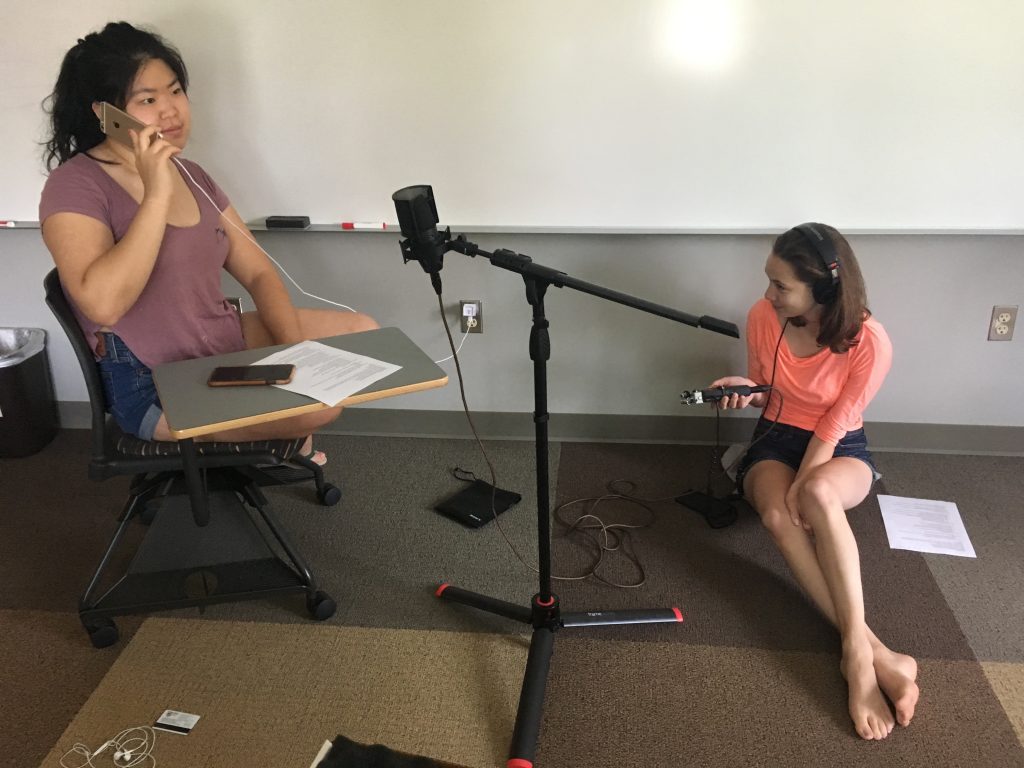Over the course of summer 2018, five A&S Summer Research Fellows conducted a series of interviews with University of Richmond black alumni. Expanding on previous research (see memory.richmond.edu) conducted in University Archives at the Virginia Baptist Historical Society, the practice of oral histories seeks to grow what is held in the archival record, to give voice to the people and stories that have not been heard and/or included in the historical record. As the Baylor University Institute for Oral History explains: “Oral history provides a fuller, more accurate picture of the past by augmenting the information provided by public records, statistical data, photographs, maps, letters, diaries, and other historical materials. Eyewitnesses to events contribute various viewpoints and perspectives that fill in the gaps in documented history, sometimes correcting or even contradicting the written record. Interviewers are able to ask questions left out of other records and to interview people whose stories have been untold or forgotten. At times, an interview may serve as the only source of information available about a certain place, event, or person.”
After conducting a series of interviews, students were tasked with creating short podcasts from the stories they heard. Special thanks to Kelley Libby for joining our team this summer and providing instruction production assistance for these student works.
On June 26, 2018, Rena Xiao (’20) conducted an oral history interview with Dr. Jesse Moore (B’81), with audio assistance from Eden Wolfer (’20).



